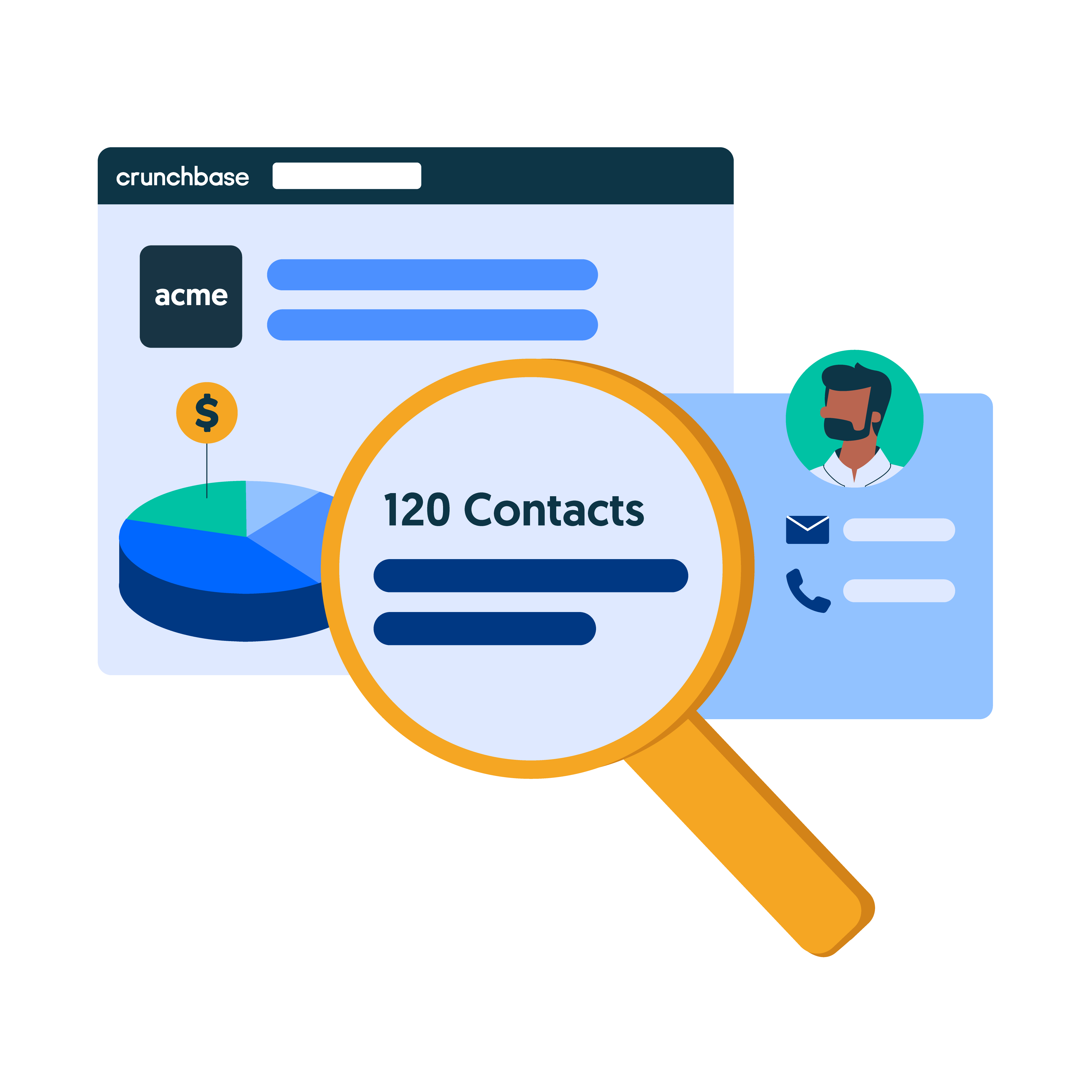Company size. The number of employees. Geographical location. Industry. It’s common for sales teams to use high-level data points like these to determine which companies to reach out to.
But what about the insights that can be gleaned when you go a layer deeper, such as signals that indicate a prospect is ready to buy?
As a sales leader, data that gives you deeper insight into companies gives you a significant competitive advantage. It enables you to take a more strategic, targeted approach to building relationships and ultimately closing deals – less spray-and-pray if you will.
HubSpot looked at data from 8,900 companies’ sales organizations across 28 industries and found that the average win rate across all industries is 19%. It was only slightly higher in some specific industries like technology at 22%.
With that in mind, the question is: how does being data-driven help you find the right prospects and close more deals?
Let’s look at an example to illustrate why being data-driven is critical for sales success in hyper-competitive markets.
Why having a data-driven sales strategy is a must-have, not a nice to have
Let’s say you target companies with the following firmographics: 3,000 employees, financial services company, and headquartered in New York. This level of detail leaves a lot to be desired – you’re only narrowing your search criteria by a few levels. While better than nothing, it doesn’t give you a whole lot to go off of in terms of who the right prospects are to reach out to and when you should get in touch with them.
Now, what if you had not just more data but data that gave you a level of detail that indicated buying signals?
Imagine having firmographics such as:
- Employee count
- Industry
- Location
- Recent rounds of funding
- Recent acquisitions
- Investors
- Latest company news
Plus dozens of other data points.
Utilizing data at the frontend of the sales cycle streamlines your prospecting. Unless you really enjoy chasing the wrong prospects, taking a data-driven approach enables you to reach the right prospects.
How do You become a data-driven sales leader?
Now for the million dollar question: how do you become data-driven?
This is where a Customer Relationship Management tool (CRM), such as Salesforce or HubSpot CRM, comes into play.
CRMs empower you to leverage data to make more informed decisions throughout the sales cycle. The data captured in these systems – company size, number of employees, industry, etc. – makes it easier to:
- Spot trends that can help evolve your sales strategy
- Identify what’s working and what’s not
- Surface commonalities (i.e. industry) between buyers
These types of insights allow you to optimize your sales strategy to ensure you’re hitting the right prospects at just the right time.
For example, let’s say in the last seven months you’ve closed 20 deals. Of the 20 deals, 12 of them (or 60%) raised a round of funding in the last year and a half. All things equal, it makes sense to target companies that have announced funding rounds in the same timeframe or sooner to maximize your opportunity of closing more business.
This is the type of decision that data in a CRM enables you to make.
Not all data is created equal
Despite the insights that can be discovered, CRMs are only as good as the data that’s in them.
Far too often companies rely on manual data entry. This means sales teams spend way too much time on an activity that’s inefficient and can easily, with human error, impact the effectiveness of sales reporting, forecasting, and ultimately performance.
Missing data, misspellings, and inconsistencies all contribute to poor data quality.
What’s the value of clean data you may wonder? For starters: poor data quality costs the U.S. economy alone $3.1 trillion a year according to IBM.
How to improve your data quality
Fortunately, there’s a way to improve data hygiene.
Data enrichment solutions like Crunchbase Enterprise are invaluable. Crunchbase Enterprise, for example, enriches company information in CRMs through a REST API or Salesforce integration by pulling in data from Crunchbase. This turns your CRM into a reliable hub of intelligence by pumping it with rich, accurate data that’s updated automatically.
For sales teams, leveraging a tool like Crunchbase Enterprise means a few things:
- Less administrative work
- Access to company information that would take hours (or longer) to find manually
- The freedom to focus on closing deals
Ultimately, when you connect a CRM with a data enrichment tool, you put yourself in a position to allow data to work for you.
Final thoughts
At the end of the day, being a data-driven sales leader isn’t about fancy reports with graphs and bar charts.
Instead, it’s about going beyond gut instinct and the spray-and-pray approach to making the most informed decisions possible for one reason: to close more business.






